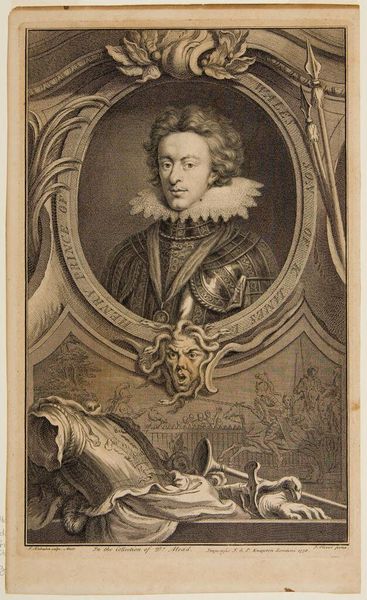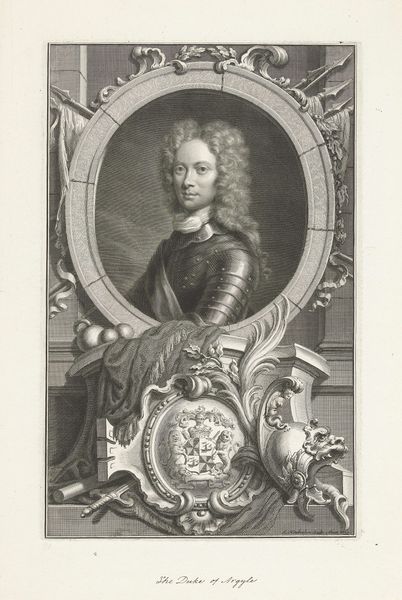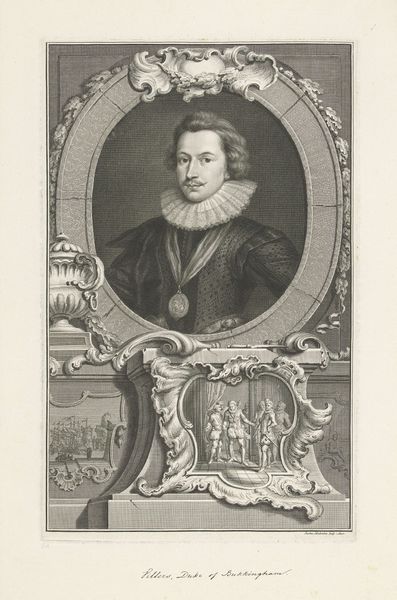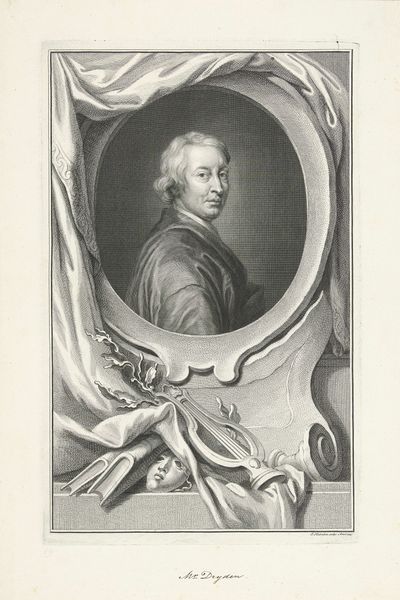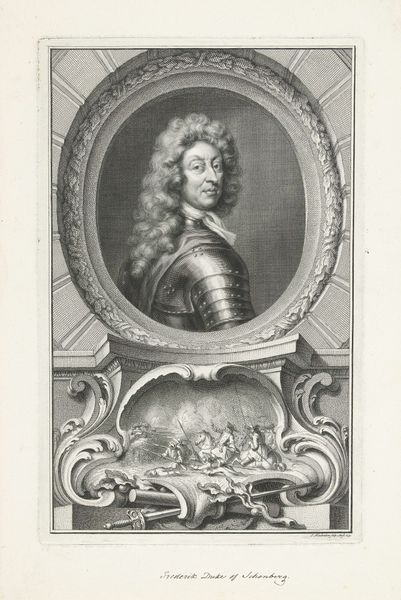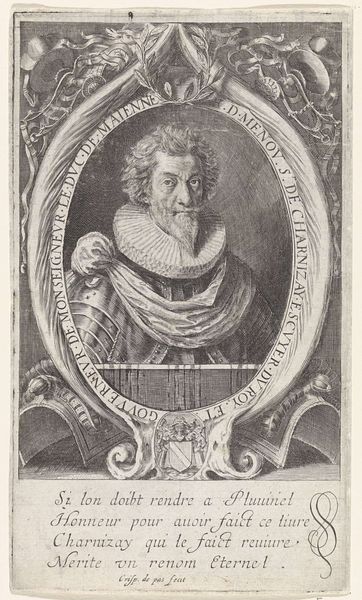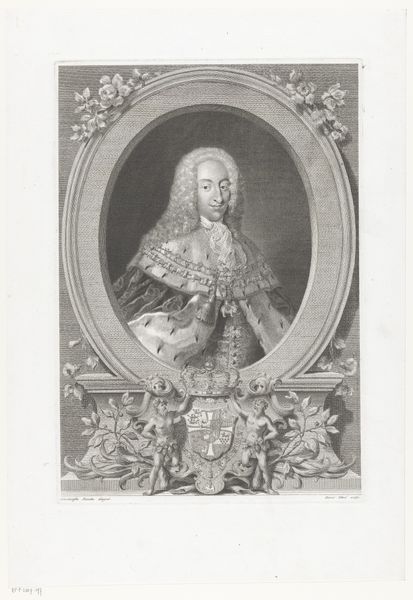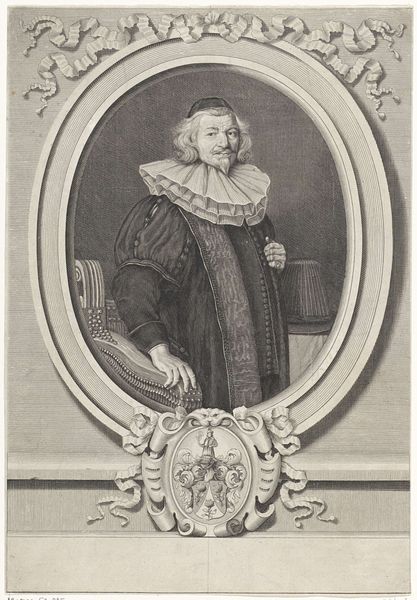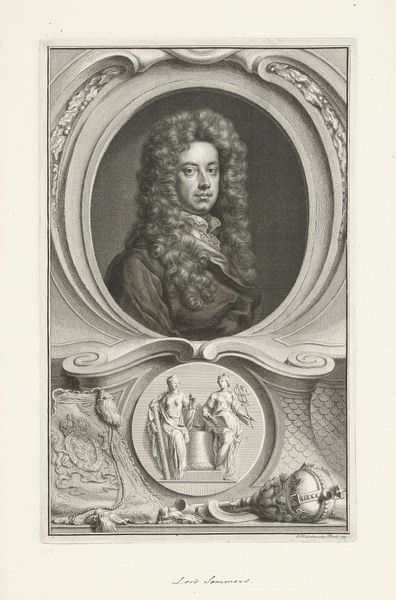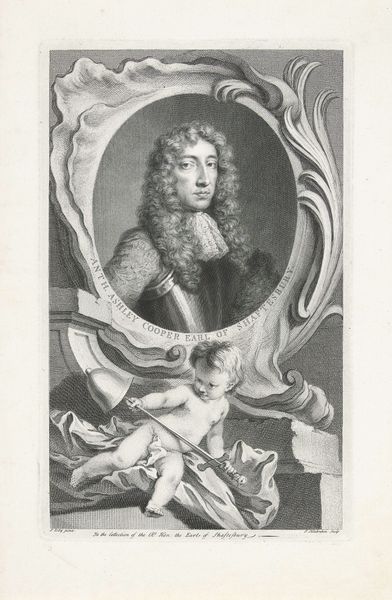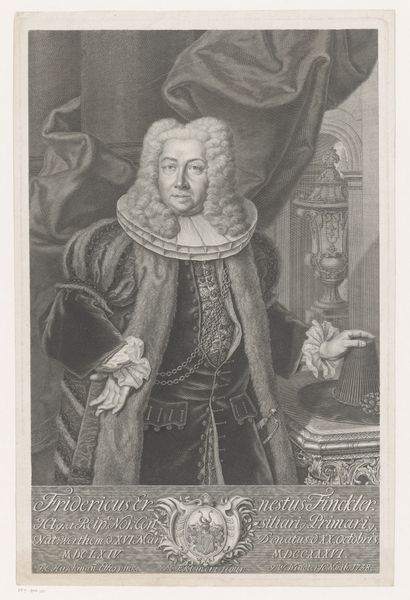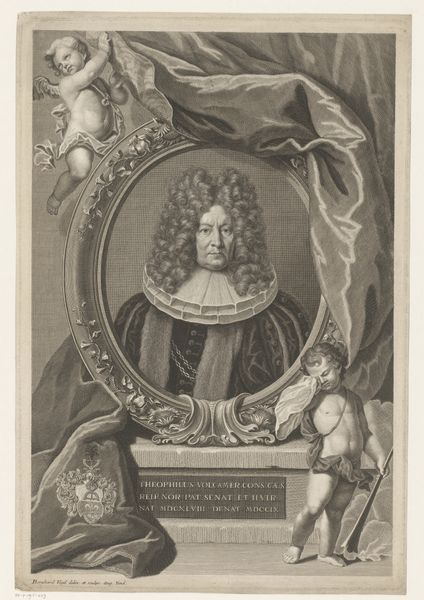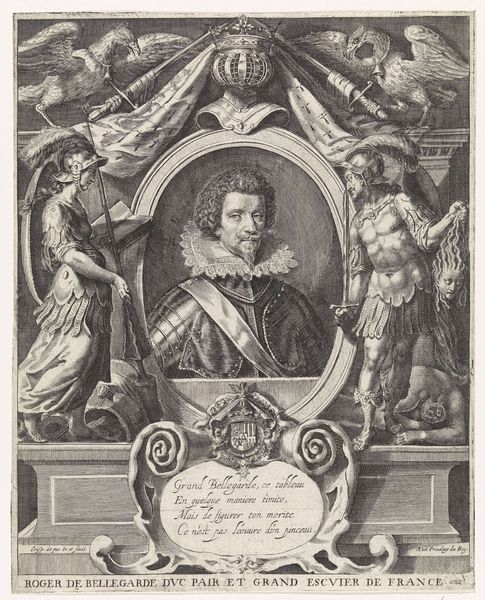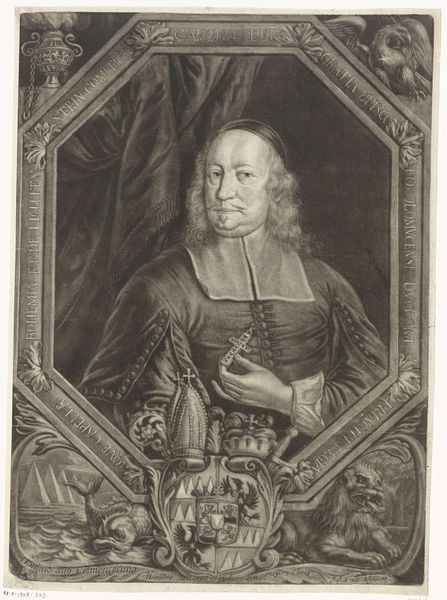
engraving
#
portrait
#
baroque
#
line
#
history-painting
#
engraving
#
realism
Dimensions: height 371 mm, width 231 mm
Copyright: Rijks Museum: Open Domain
This is an engraving of Henry Frederick, Prince of Wales, made by Jacob Houbraken. It’s a print, meaning that it was made by cutting lines into a metal plate, inking it, and then pressing it onto paper. The magic of engraving lies in the precision of the lines. Houbraken would have used specialized tools called burins to carve the image, controlling the depth and thickness of each line to create the illusion of light, shadow, and texture. Look closely at the details: the delicate lace collar, the sheen on the armor, the flowing hair. Each of these effects was achieved through painstaking labor. Engravings like this one were relatively accessible compared to painted portraits. This speaks to the rise of a middle class with some disposable income, and an appetite for images that reflected their aspirations. They are evidence of the shift in artistic production, driven by consumer culture and commercial exchange. So, next time you see a print, think about the hands that made it, the tools that shaped it, and the society that consumed it. It’s a reminder that art is not just about individual genius, but about the complex interplay of materials, processes, and social forces.
Comments
No comments
Be the first to comment and join the conversation on the ultimate creative platform.
